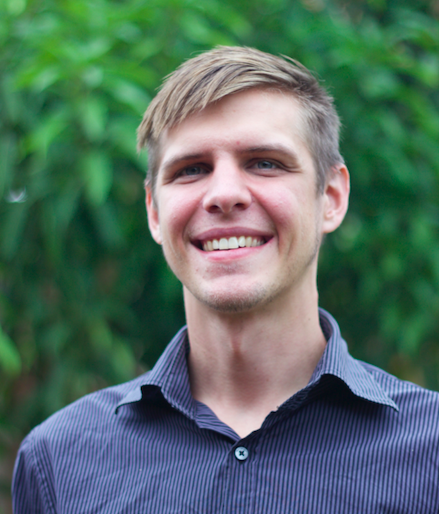Presented by Ingabire Merab, Luke Espiritu & Phil Wilmot, Wednesday, May 27, 2020
Webinar Content:
Introduction of Speakers: 0:00 – 3:47
Presentation: 3:48 – 37:51
Questions and Answers: 37:53 – 1:01:34
Webinar Description:
This webinar explored what activists in the Global South are doing to navigate public health concerns and authoritarian conditions to advance their causes during the COVID-19 pandemic. Panelists based in the Global South discusses the challenges in their contexts and what their movements and networks are doing to seize the moment to build power for their progressive agendas. Ingabire Merab represented movements in Uganda under President Yoweri Museveni’s regime, Luke Espiritu represented movements in the Philippines under President Rodrigo Duterte, and Phil Wilmot addressed the North-South paradigm and how pop culture narratives influence resistance behavior.
Presenters:
 Ingabire Merab is a trained journalist and the Head of Media and Communication at Solidarity Uganda, a progressive organization of activists and political education trainers based in Uganda. The organization focuses on training, coaching, and capacity-building for activists and organizers to boost their social and political effectiveness using civil resistance and nonviolence as a methodology.
Ingabire Merab is a trained journalist and the Head of Media and Communication at Solidarity Uganda, a progressive organization of activists and political education trainers based in Uganda. The organization focuses on training, coaching, and capacity-building for activists and organizers to boost their social and political effectiveness using civil resistance and nonviolence as a methodology.
When the COVID-19 pandemic hit the world, many countries put in place various measures to curb its spread through their populations. Shortly before Uganda registered its first COVID-19 cases, and before closing air transport, all airline passengers were vehemently placed under quarantine in a very expensive hotel which they were expected to pay over $100 per day for two weeks. Most of them couldn’t afford the high charges so they mostly went without food and decent lodging. Solidarity Uganda together with some friends decided to pull together resources to help cover a few basic needs and water. After this visit, together with those quarantined at the hotel, they published the inhuman conditions under which the state was subjecting those in quarantine and how they were being exploited. The state was forced into an urgent meeting with the Ministry of Health in which they were forced to step up their game by bettering the conditions under which they were quarantining people.
 Luke Espiritu is the national president of the Solidarity of Filipino Workers (Bukluran ng Manggagawang Pilipino or BMP), a socialist labor center, and the Solidarity of Unions in the Philippines for Empowerment and Reforms (SUPER), a trade union federation.
Luke Espiritu is the national president of the Solidarity of Filipino Workers (Bukluran ng Manggagawang Pilipino or BMP), a socialist labor center, and the Solidarity of Unions in the Philippines for Empowerment and Reforms (SUPER), a trade union federation.
Luke has an extensive experience in union organizing, which includes rights education, campaigns on democratic issues, and organizing strikes, direct action, and negotiation to win workers’ demands for regular jobs, union rights, and better wages. Under Luke’s leadership, BMP and SUPER have been involved in nine factory strikes from August 2018 to March 2020, a number of bus strikes, and numerous worker-led direct action events on various issues, ranging from workers’ issues to the climate change.
Luke is also a litigation lawyer and has represented workers, the urban poor, and activists. He was the lawyer who represented the citizens of Indang, a rural town south of Manila, in their fight against a large-scale water facility that has a destructive impact on the environment. They, with Luke as counsel, secured a court-ordered closure (known locally as Writ of Kalikasan) of the water facility–the first ever Writ of Kalikasan secured in the Philippines.
 Phil Wilmot is a community organizer and founder of Solidarity Uganda, based in Kisubi, Uganda. He is a regular contributor to the ICNC blog and is a correspondent for Waging Nonviolence, writing extensively on civil resistance and movements in Africa. Phil is also an editorial member with activist extraordinaires Beautiful Trouble.
Phil Wilmot is a community organizer and founder of Solidarity Uganda, based in Kisubi, Uganda. He is a regular contributor to the ICNC blog and is a correspondent for Waging Nonviolence, writing extensively on civil resistance and movements in Africa. Phil is also an editorial member with activist extraordinaires Beautiful Trouble.
Relevant Webinar Readings:
“Have Movements Disappeared during Lockdown?” by Geoffrey Pleyers
“How is the COVID-19 Crisis Changing the Global Movement Landscape?” by Amber French
“COVID-19: Harnessing the Obstructive Power of Constructive Program” by Phil Wilmot
“COVID-19 can trigger revolution—here’s how!” by Isa Benros, Phil Wilmot, and Søren Warburg
“Power-grabbing in Guise of Crisis Response: Lessons from the NATO Bombing of Serbia in 1999” by Ivan Marovic
Additional Q & A with Phil Wilmot
Are there any other strategies and tactics that have arisen during the pandemic that we were not able to discuss? How do we bridge the gap created by social distancing?
There are many groups discussing creative tactics right now, including the Activist Tactic Exchange, and the webinar held between Nonviolence International and Beautiful Trouble.
Bridging the gap created by social distancing: We have to reframe in political but not esoteric terms, how solidarity and support to one another looks differently in this time. We have to create community around the needs that arise during quarantine and lockdown. This is a time to recruit members to our movements, because people are craving purpose, community, and answers.
How are your movements taking health precautions to minimize the risk of getting sick when doing face-to-face organizing?
Face-to-face organizing is extremely limited at the moment, and the proper distancing and mask precautions are advised. Some actions require many people to participate, and communication and preparation focuses on doing it safely.
With a greater dependence on telecommunications, how can movements meet the challenges of cyber surveillance and internet-empowered repression?
There is digital self-defense and then there is digital action (we have to take the principles of direct action to the digital terrain more frequently and at higher levels). It is best to always assume that we are surveilled. In Uganda specifically, the greatest threat to security of organizers is a human network of spies and saboteurs. Digital surveillance is concerning, but not to the same extent. This will vary context to context. Movements have to determine what/who is overt and covert and why.
Are your movements seeing an increase in arrests related to digital activism? And if so, how do you push back on this creatively?
Yes, there is severe repression of some Facebook users and journalists and writers. Here is an article I wrote that addresses how to start a rapid response system, without much (if any) money, to position your movement well to handle such repression.